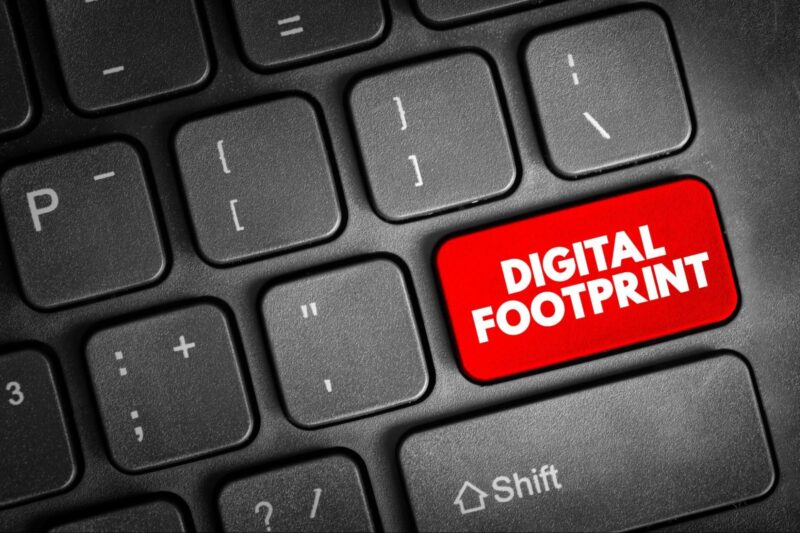
In the 21st century, technology has become a powerful ally for consumers. With unsafe products and questionable corporate practices, individuals can now protect their rights using digital tools.
From online platforms for reporting issues to AI-driven legal advice, technology helps consumers challenge wrongdoing effectively. It also offers access to valuable resources, promoting transparency and accountability.
In this article, we’ll explore how technology defends consumer rights, offering ways to ensure safety and fairness.
Harnessing Online Feedbacks and Social Media
Social media and review platforms provide consumers with a powerful voice to share their experiences. Posting product experiences online, on social media platforms helps alert others to potential dangers.
Search Engine Journal states that Facebook holds the largest share of the social media advertising market, with 16% of the market. A staggering 81% of organizations utilize social media to increase brand awareness and visibility. Social media platforms have become essential tools for businesses looking to reach a wider audience and grow.
These reviews often capture the attention of companies and regulators, prompting faster responses to address issues. In addition to sharing experiences, these platforms connect consumers with others facing similar problems, creating a sense of solidarity.
A united consumer voice can lead to collective action, including boycotts or petitions, to drive change. Social media also pressures brands to maintain transparency and quickly address consumer concerns, ensuring accountability.
How Can Consumers Use Social Media To Report Issues?
Consumers can use platforms like Twitter, Facebook, and Instagram to report product issues. They can tag companies or use relevant hashtags to draw attention to concerns. These platforms make it easier for individuals to highlight problems, prompting swift responses from companies seeking to manage their public image.
Tracking Product Safety with Consumer Apps
Some apps offer real-time information about product recalls and safety ratings. These tools help consumers identify products that may pose health or safety risks, enhancing personal safety.
The U.S. Consumer Product Safety Commission is a key resource for consumers seeking recall information. Their CPSC Recall app provides real-time notifications about product recalls, delivering updates directly to consumer devices. This tool helps users stay informed and make safer decisions by tracking recalled products.

Users can quickly determine whether items are safe for use by scanning barcodes or entering product details. In addition, these apps provide insights into the ethical practices of companies, such as sustainability and ingredient sourcing.
With this information, consumers can make more informed purchasing decisions based on safety and ethics. This technology not only protects consumer rights but also encourages accountability among manufacturers and corporations.
Do These Apps Integrate With Other Digital Tools?
Some product safety apps integrate with other digital tools like fitness trackers or smart home devices. This synergy allows consumers to track their health or environmental impact more comprehensively. The integration of multiple tools enhances the overall user experience, providing a more holistic approach to product safety.
Tech Tools for Staying Informed on Legal Changes
To protect themselves, individuals must stay up to date on law developments affecting consumer rights. Technology has made it simpler to follow changes in laws and regulations governing product safety and consumer protection.
News websites, legal blogs, and social media platforms provide real-time updates on legal changes affecting consumers. Subscribing to legal newsletters and following organizations like the CFPB or FTC helps consumers stay ahead of issues.
For example, TorHoerman Law mentions that the talcum powder lawsuit is currently making headlines. Many consumers are seeking justice for health issues linked to the product. Tech-driven platforms, such as legal advocacy websites, offer real-time updates on the latest talcum powder cases and rulings.
In this case, the online resource Lawsuit Information Center recently reported that manufacturer Johnson & Johnson must pay $15 million in damages. This verdict was in a talcum powder lawsuit involving a Connecticut real estate developer who developed mesothelioma from asbestos exposure. The court held Johnson & Johnson accountable for the exposure, which led to the plaintiff’s mesothelioma diagnosis.
Can Legal Newsletters Offer Actionable Advice?
Legal newsletters often provide timely updates, insights, and actionable advice related to consumer rights. These publications summarize legal changes and court rulings that could impact consumers. Subscribing to a legal newsletter helps individuals stay proactive and informed, making it easier to navigate their rights in a changing legal landscape.
Crowdsourcing Advocacy Through Digital Campaigns
Technology has significantly amplified the power of grassroots activism, enabling consumers to challenge unethical corporate behavior. Platforms like Change.org allow consumers to start petitions demanding action on unsafe products or practices.
These petitions often gain traction quickly, forcing companies to take action and address consumer concerns. Crowdfunding platforms like GoFundMe offer financial support for lawsuits against negligent companies, empowering consumers to fight back.

Statista mentions that the global crowdfunding market reached an estimated volume of 1.17 billion U.S. dollars in 2023. The crowdfunding industry is expected to expand by 1.48% between 2024 and 2028, reaching $1.27 billion. Kickstarter, one of the major crowdsourcing platforms, has launched over 600,000 initiatives as of January 2024.
When consumers unite using these tools, they create a powerful force for change and accountability. Digital campaigns also attract media attention, raising awareness and pressuring corporations to uphold consumer safety standards.
How Can Crowdfunding Support Legal Battles Against Corporations?
Crowdfunding platforms provide financial support for individuals suing corporations, empowering consumers to pursue justice. These platforms make it easier for victims of corporate negligence to access legal representation by raising funds. Crowdfunding democratizes the legal process, ensuring consumers can take on large corporations, even without significant financial resources.
The digital age has completely changed how consumers interact with businesses and products. Technology now empowers individuals to take control, using online platforms and mobile apps to ensure fairness. From social media campaigns to real-time legal updates, consumers are no longer passive observers.
This power shift has pushed corporations to adopt more ethical practices, prioritizing consumer safety and accountability. With technology evolving rapidly, we can expect even more innovative tools to help consumers protect their rights. The future holds exciting potential for consumers to continue demanding transparency and fairness from brands, driving positive change in industries worldwide.






